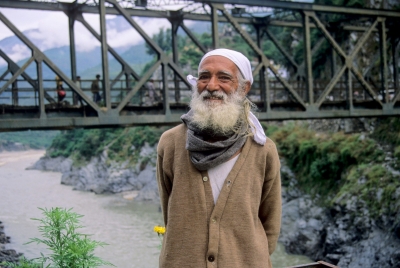
The Chipko movement or chipko andolan, was a forest conservation movement in India.
It began in 1973 in Uttarakhand, then a part of Uttar Pradesh (at the foothills of Himalayas) and went on to become a rallying point for many future environmental movements all over the world. It created a precedent for starting nonviolent protest in India. However, it was Sunderlal Bahuguna, a Gandhian activist, who gave the movement a proper direction and its success meant that the world immediately took notice of this non-violent movement, which was to inspire in time many similar eco-groups by helping to slow down the rapid deforestation, expose vested interests, increase social awareness and the need to save trees, increase ecological awareness, and demonstrate the viability of people power.
Mr. Bahuguna, who lived for decades in his Silyara ashram in Tehri Garhwal, inspired many young people in his passion for the environment. His ashram was open to young people, with whom he communicated with ease.
He, along with local women, founded the Chipko movement in the Seventies to prevent the felling of trees in the ecologically sensitive zones. The movement’s success led to enactment of a law to ban the felling of trees in ecologically sensitive forest lands. He also coined the Chipko slogan: ‘ecology is permanent economy’.
Picture Credit : Google



